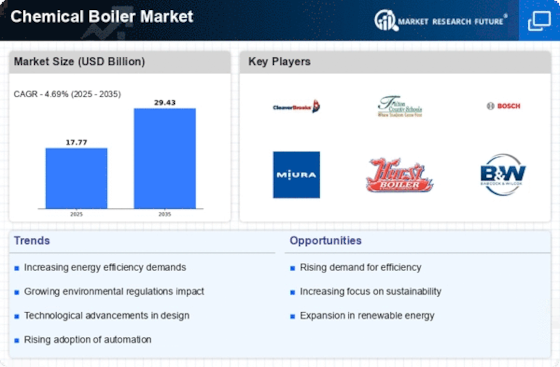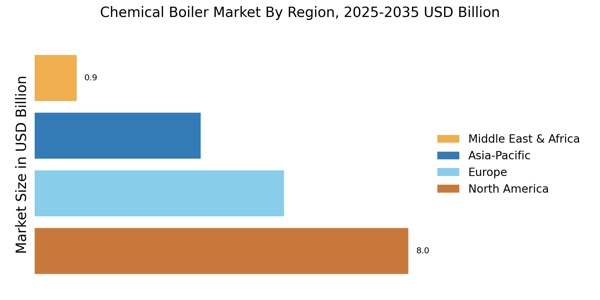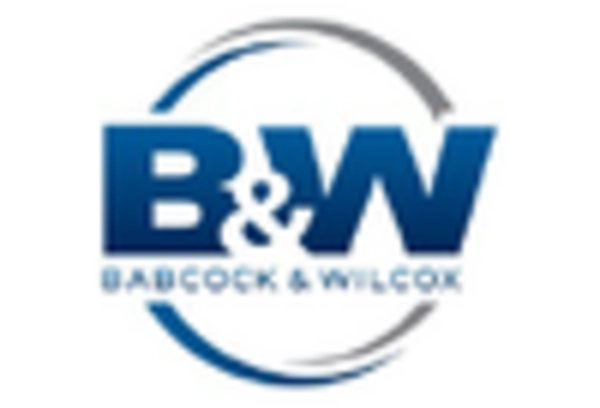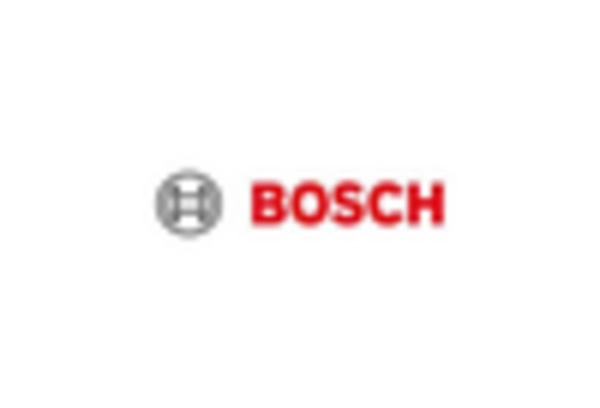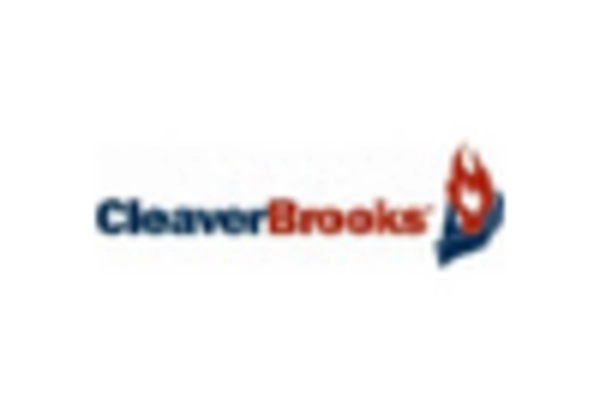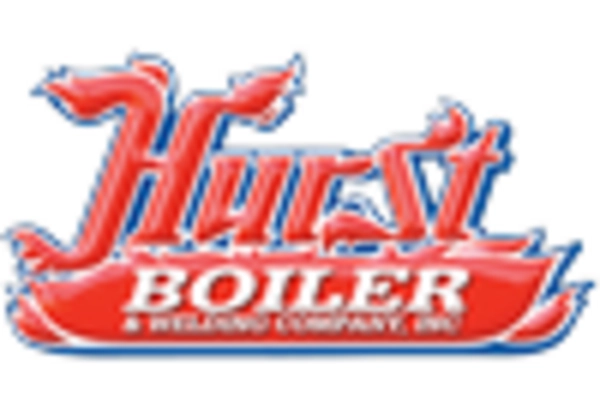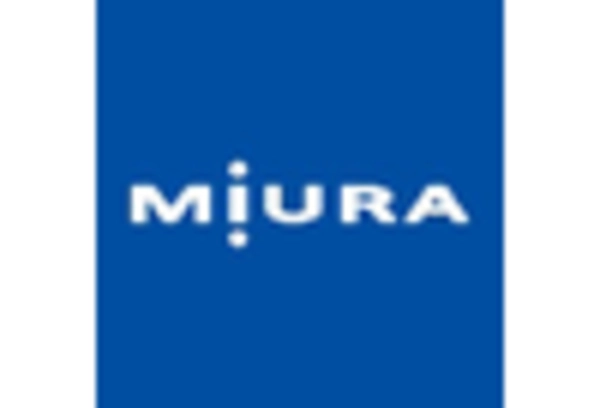Growth in Renewable Energy Integration
The Chemical Boiler Market is witnessing a shift towards the integration of renewable energy sources. As industries aim to reduce their carbon footprint, there is a growing interest in utilizing biomass and other renewable fuels in chemical boilers. This transition is supported by government incentives and initiatives promoting the use of clean energy. Recent data suggests that the adoption of renewable energy in industrial applications could lead to a significant reduction in greenhouse gas emissions. Consequently, the Chemical Boiler Market is adapting to this trend by developing boilers that can efficiently utilize renewable fuels. This evolution not only enhances sustainability but also positions the industry favorably in a market increasingly focused on environmental responsibility.
Increasing Demand for Energy Efficiency
The Chemical Boiler Market is experiencing a notable surge in demand for energy-efficient solutions. Industries are increasingly focusing on reducing operational costs and minimizing environmental impact. This trend is driven by stringent regulations aimed at lowering greenhouse gas emissions and enhancing energy efficiency. According to recent data, energy-efficient boilers can reduce energy consumption by up to 30%, which is a compelling incentive for industries to upgrade their systems. As a result, manufacturers are innovating to produce boilers that not only meet but exceed these efficiency standards. This shift towards energy efficiency is likely to propel the Chemical Boiler Market forward, as companies seek to align with sustainability goals while optimizing their energy use.
Rising Industrialization and Urbanization
The Chemical Boiler Market is significantly influenced by the ongoing trends of industrialization and urbanization. As countries develop, there is a marked increase in manufacturing activities, which in turn drives the demand for chemical boilers. Industries such as pharmaceuticals, food processing, and petrochemicals are expanding, necessitating reliable and efficient heating solutions. The rise in urban populations also contributes to increased energy consumption, further propelling the need for chemical boilers. Recent statistics indicate that the industrial sector accounts for a substantial portion of energy use, with chemical boilers playing a crucial role in meeting this demand. Consequently, the growth of industrialization and urbanization is expected to bolster the Chemical Boiler Market in the coming years.
Technological Innovations in Boiler Design
Technological advancements are reshaping the Chemical Boiler Market, as manufacturers invest in innovative designs and features. The introduction of smart boilers equipped with IoT capabilities allows for real-time monitoring and optimization of performance. These innovations not only enhance efficiency but also improve safety and reduce maintenance costs. Furthermore, the integration of advanced materials and combustion technologies is leading to the development of boilers that can operate at higher pressures and temperatures, thereby increasing their applicability across various sectors. As industries seek to modernize their operations, the demand for technologically advanced chemical boilers is likely to rise, driving growth in the Chemical Boiler Market.
Regulatory Compliance and Environmental Standards
The Chemical Boiler Market is significantly shaped by the increasing emphasis on regulatory compliance and environmental standards. Governments worldwide are implementing stringent regulations to control emissions and promote cleaner technologies. This regulatory landscape compels industries to adopt advanced boiler systems that comply with these standards. For instance, the introduction of low-NOx burners and other emission-reducing technologies is becoming a necessity for many sectors. As companies strive to meet these regulations, the demand for compliant chemical boilers is expected to rise. This trend not only supports environmental sustainability but also drives innovation within the Chemical Boiler Market, as manufacturers develop solutions that align with evolving regulatory requirements.


